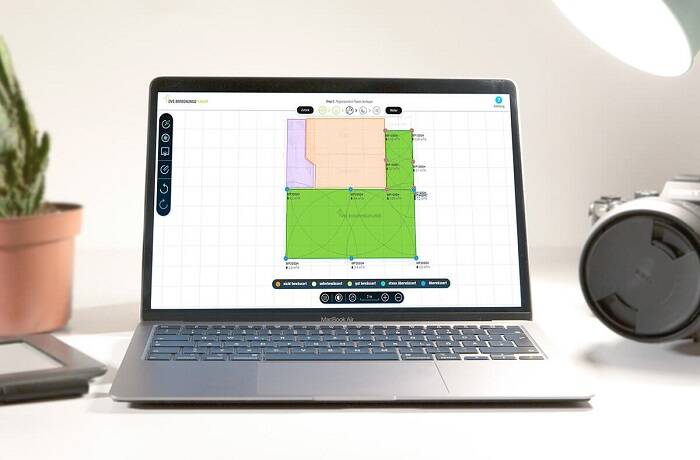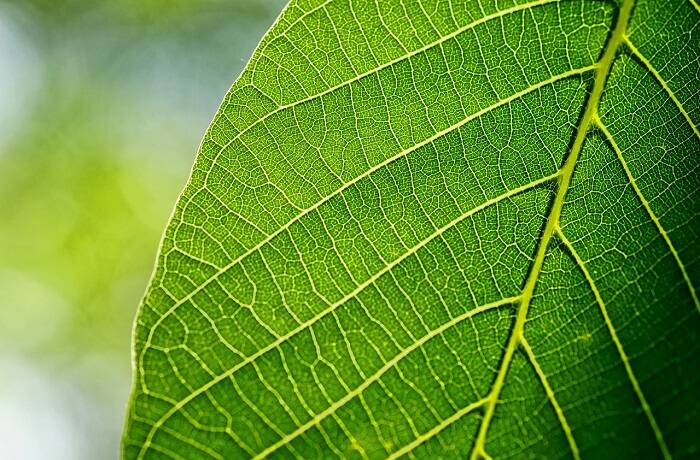Do you still have questions?
We are always happy to help! Simply use our contact form to let us know your concerns. We will endeavor to answer you within 24 hours.
Courgettes are among the most popular vegetables in Germany and are an established part of horticulture and agriculture. With a well-planned drip irrigation system, you can ensure an even water supply – for every area, every section and every type of cultivation. The aim is to optimise water use and improve harvest quality.
Drip irrigation is an efficient way to supply water to plants. It works automatically and provides plants with exactly the amount of water they need. This approach is particularly important in agricultural settings, as it helps to conserve water and increase the production of vegetables and other crops.
What is drip irrigation?
Drip irrigation is a form of irrigation that delivers water directly to the roots of plants. This is done through a network of drip hoses and drippers connected to the water source. Drip irrigation is a sustainable method that helps optimise water supplies and protect the environment.
We look forward to hearing from you and your project! Fill out the form and we'll get back to you as soon as possible!
Courgettes are among those vegetables that need a lot of water but are very sensitive to waterlogging. Especially in agriculture, it is difficult to irrigate large areas evenly. Drip irrigation brings water directly to the roots of the plants – with the highest quality and absolute sustainability. This way, you protect soil and yield, save water and support sustainable production.
In the garden and in agriculture, courgettes need daily watering during the main season. The exact amount depends on the type of soil, the area and the weather. Modern systems offer the possibility of automatically adjusting the irrigation according to these factors. It is particularly important that the soil should never be allowed to dry out completely, but that water should not be allowed to stand either.
Whether in horticulture or professional agriculture, drip irrigation delivers water exactly where it is needed: to the roots. This keeps the leaf surface dry, reducing the risk of disease. It also saves you water and allows you to add fertiliser in one system. Farmers also benefit from this efficient principle.
The main products include drip hose, single drippers for targeted irrigation, filters, pressure reducers and a control system. DVS Beregnung offers a wide range of accessories – ideal for hobby gardeners, horticultural businesses or agricultural businesses. There are also suitable solutions for areas of different shapes.
Yes, this is possible in both horticulture and agriculture. For smaller gardens, a micro hose is often sufficient, whereas for agriculture, a larger diameter is needed depending on the area. Rainwater is a cheap and sustainable form of irrigation – and a contribution to the conservation of valuable resources.
Yes, in agriculture and horticulture this is actually very common. A fertiliser injector adds nutrients directly to the water, and the system delivers them precisely to the roots. This creates an efficient form of fertilisation that improves the quality of the courgettes – a contribution to the sustainable production of high-quality food.
Before the frost sets in, you should empty the hoses and blow them out with compressed air. This simple principle protects your system from damage. Whether in a private garden or on an agricultural area, your drip irrigation will remain operational for many years.
Courgettes are among the vegetables that are grown in Germany from June to October on many agricultural areas and a significant portion of the country's land. Particularly in agriculture and horticulture, a well-functioning drip irrigation system is crucial for the quality of the harvest. Especially in times of rising prices for water and fertilisers, drip irrigation offers numerous advantages.
First of all, you should determine the shape and size of your area. In Germany, there are both small garden areas and large areas under cultivation in agriculture. DVS Beregnung offers suitable solutions for every area – from micro-hoses for small gardens to robust drip hoses for professional agriculture.
Another important factor is the quality of the soil. Clay soils store water better than sandy soils, but need longer dry periods. In the accessories section, you will find DVS irrigation soil moisture sensors that help you to adapt the irrigation precisely to the needs of your plants.
It is particularly important to plan drip irrigation so that it can be adapted flexibly to any shape of area, including irregularly shaped beds or sloping terrain.


Whether in a private garden, on agricultural land or in horticultural businesses, the installation always follows the same principle. From the water connection, you run a main line to the beds. From there, the drip hoses branch out directly to the plants. The diameter of the hoses is chosen according to the area and the desired amount of water.
On farms, drip irrigation can be connected directly to an existing irrigation system. Many farms rely on water supplied from cisterns or wells. In the garden, a tap connection is often sufficient. Filters protect the drippers from clogging – an important detail for the long-term quality of the system.
During the growth phase, a control system takes over daily watering – depending on the weather and adapted to the needs of the plants. In practice, a combination of drip irrigation and liquid fertilisation improves the quality of the courgettes while also saving water. This applies to both farms and private gardens.
Before winter, the system is rinsed with clear water and carefully emptied. This ensures that the system remains long-term functional. In various articles on sustainable agriculture, the German government explicitly recommends the use of water-saving techniques such as drip irrigation – an important contribution to the sustainable production of high-quality food.
Drip irrigation offers numerous ecological advantages. It reduces water consumption, decreases soil erosion and protects the landscape. In addition, drip irrigation promotes biodiversity and helps to conserve the environment. The German government supports drip irrigation as a sustainable method of promoting agriculture and protecting the environment.
Climate protection and adaptation
Drip irrigation plays an important role in climate protection and adaptation. It helps to minimise the effects of climate change on agriculture and to increase the production of agricultural products. In addition, drip irrigation helps to reduce CO2 emissions and protect the environment. The federal government supports drip irrigation as an important measure for combating climate change and protecting the environment.


Drip irrigation offers a sustainable solution for the targeted water supply of courgettes and other plants. The efficient use of water and fertiliser ensures a high-quality harvest and conserves resources. With flexible adaptation and easy installation, the system ensures optimal irrigation in gardens and agriculture.
Advantages at a glance:
• Sustainable irrigation for gardens, agriculture and farming
• High quality courgettes thanks to targeted water supply
• Efficient use of water and fertiliser
• Flexible adaptation to any type of surface
• Easy installation with Plug&Rain® from DVS Beregnung
• Suitable products for every area – from gardens to agriculture
• A contribution to sustainability and resource conservation
We are always happy to help! Simply use our contact form to let us know your concerns. We will endeavor to answer you within 24 hours.

Wondering exactly how planning or installation works? We have the right instructions for you for every step.

Are you stuck with your planning or installation? Send us an e-mail and we'll get back to you within 24 hours with the solution.

Do you still have further questions? Then you are welcome to book a personal appointment with us.